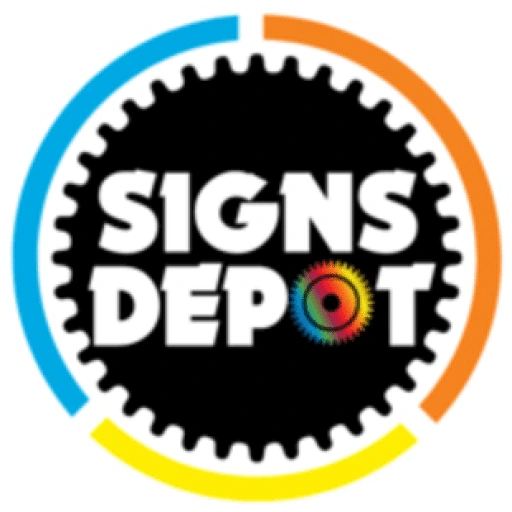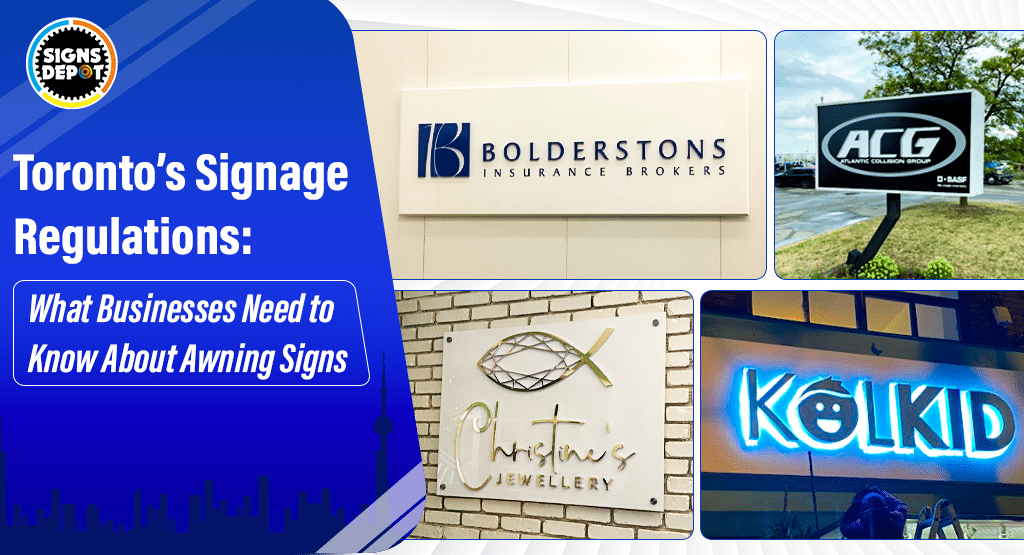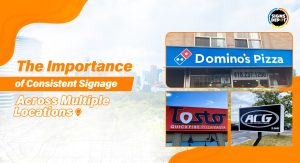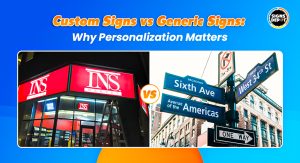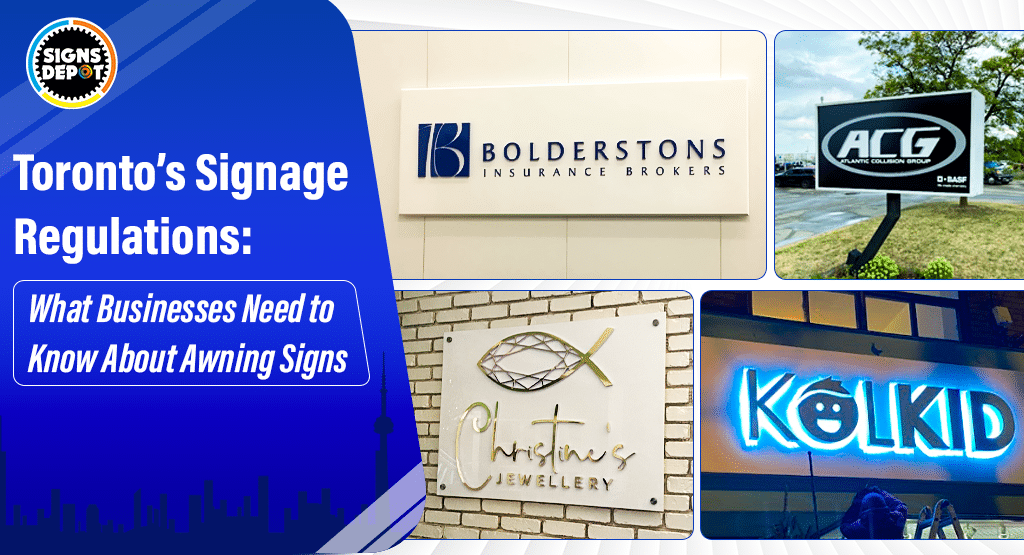
You have a dream of operating your business successfully in Toronto’s market. But are you aware of how Toronto’s signage regulations might influence your business sign choices? Do you know the permit requirements and design restrictions that might impact your signage installation process and overall visibility?
Whether you plan to open a new store or just want to upgrade the older one, understanding Toronto’s signage regulations is important in ensuring compliance and avoiding hefty penalties.
Awning signs Toronto are widely accepted by businesses due to their unmatched visibility and functionality. These signs also provide shade and shelter for customers.
However, a city like Toronto has plenty of rules and regulations regarding the usage of awning signs in public places. These signs maintain public safety and aesthetics without compromising the core objectives.
This blog highlights why popular businesses should know about awning sign regulations in Toronto, from installation requirements to design considerations.
Understanding Awning Signs
These business signs infuse branding and functionality. They are commonly installed as extensions of a storefront, window, or entrance. They are primarily used in restaurants, cafes, retail stores, and other commercial areas. They not only entice potential customers but also offer adequate protection from the city’s diverse weather conditions.
Why choose these signs?
These signs are attention-grabbing for many reasons.
- They uplift visibility and overall branding experience
- These signs offer shelter and shade to potential customers
- They make your storefront more appealing
- You can illuminate them to enhance visibility
Though the benefits are unfathomable, you still need to ensure that these signs follow all the city’s municipal regulations.
Recommended reading: Top Benefits of Awning Signs for Toronto Businesses
Toronto’s Signage Regulations
When it comes to safety and aesthetics, Toronto abides by certain rules and regulations. The regulations for awning signs Toronto are primarily defined in Toronto’s Sign Bylaw (Chapter 694 of the Toronto Municipal Code). Check the parameters you need to consider before installing these signs.
1. Permit Requirements
Every business should get a permit from the city’s municipality before installing signs. The permit mentions what are the parameters that signs need to follow to maintain zoning laws and safety standards.
How to Apply for a Permit:
- You need to submit a detailed application process through the Toronto Building Department.
- Please mention the specifications, such as dimensions, materials usage, and placement.
- Now, pay the fees according to the signage size and location.
- Wait for the approval process. Don’t install signs before the approval
- You will be susceptible to heavy penalties, removal orders, or surplus charges if you don’t have the permit.
Consult with the best sign company in Toronto that will help you get the approval for your signage installation.
2. Size and Placement Regulations
The city follows stringent guidelines and regulations for awning signs to prevent obstruction and maintain the overall aesthetic appeal.
- Projection Limits: The signs should not extend too far over footways or roadways to avoid thwarting passersby and vehicular movement.
- Clearance Requirements: You should install the signs at a certain height above the ground to ensure pedestrian well-being.
- Encroachment Rules: If your awning custom signs Toronto extend into the public right-of-way, you may require additional permissions.
3. Material and Design Standards
Toronto is a business hub where you can find many companies flourishing daily. You should use top-grade materials and professional designs for an elegant look in the city’s urban landscape.
- Durable Materials: Always opt for weather-resistant materials like fabric, metal, or durable plastic for your signs.
- No Flashing Lights: You can’t use flashlights or animated lighting systems. These types of lighting systems cause distractions and make pedestrians’ lives risky.
- Illumination Guidelines: If you use illuminated signs, you need to ensure that your custom signs Toronto follow the brightness limits to prevent light pollution and disturbance.
4. Content Restrictions
Toronto has its own set of content regulations that you need to follow when planning to install signs. You can’t use offensive, misleading, or unauthorized content on your business signs.
- Don’t use misleading information or false advertising to capture audiences’ attention
- Your signs should comply with trademarks and intellectual property laws.
- Never use any offensive language or imagery. The content should follow the community guidelines.
5. Zoning Considerations
The zonal laws are not the same for all areas in Toronto. This may impact your signage regulations. Every business should check their local rules and regulations before proceeding.
- Commercial districts: This district gives businesses flexibility when it comes to signage design and placement.
- Residential areas: They have stringent rules for the neighborhood’s character.
- Heritage zones: You may need additional approvals for signage installation to prevent historic aesthetics.
Benefits of Compliance
Once you follow Toronto’s legal complications, your business may avoid future complications and penalties. This will also make your signage professional and aesthetically appealing. Some prime reasons for following compliance could be,
- Legal Protection: Get rid of fines and enforcement actions from the city.
- Enhanced Business Reputation: Well-designed signage solutions portray a sense of professionalism, trustworthiness, and modernity.
- Increased Foot Traffic: A compliant, aesthetically appealing awning sign draws plenty of attention from customers.
- Long-Term Cost Savings: You may avoid penalties and redesign expenditures, saving money in future.
Best Practices
Don’t ignore the below-mentioned points to enhance the maximum visibility and functionality of your awning signs.
1. Work with a Professional Sign Company
Always try to hire the best sign company in Toronto that knows how to design awning signs to meet the city’s regulatory requirements without compromising the look.
Recommended reading: How a Sign Company in Toronto Can Help You Boost Your Brand
2. Use High-Quality Materials
Never compromise with the quality of signage materials. Select versatile, weather-resistant materials that can cope with the city’s diverse climate without tarnishing visual appeal.
3. Ensure Readability
Wisely choose fonts, color, and graphics to maintain readability even from afar. Don’t use too many design elements and clutter the signage.
4. Incorporate Branding Elements
Use the same colors, logos, and typography that you have applied for the rest of the branding.
5. Maintain and Clean Regularly
Dirty signs may influence your market reputation negatively. Maintain your signs to improve longevity and a professional look.
Conclusion:
Though Toronto’s signage regulations are intricate, choosing the right signage company will make the process hassle-free and effective. If you need bespoke, top-grade, and regulation-compliant awning signs, consult Signs Depot.
Our teams offer customized, durable, and aesthetically appealing signs that meet municipal guidelines and improve your overall visibility. Whether you are planning to install a new sign or upgrade the previous one, our guidance and high-quality craftsmanship will offer compliance and maximum impact. We design banner signs, channel letters, vinyl, and flex signs Toronto.
Once you know Toronto’s signage regulations and work with an established signage partner, your business can enjoy multifarious benefits from an enthralling awning sign while maintaining compliance and professionalism
